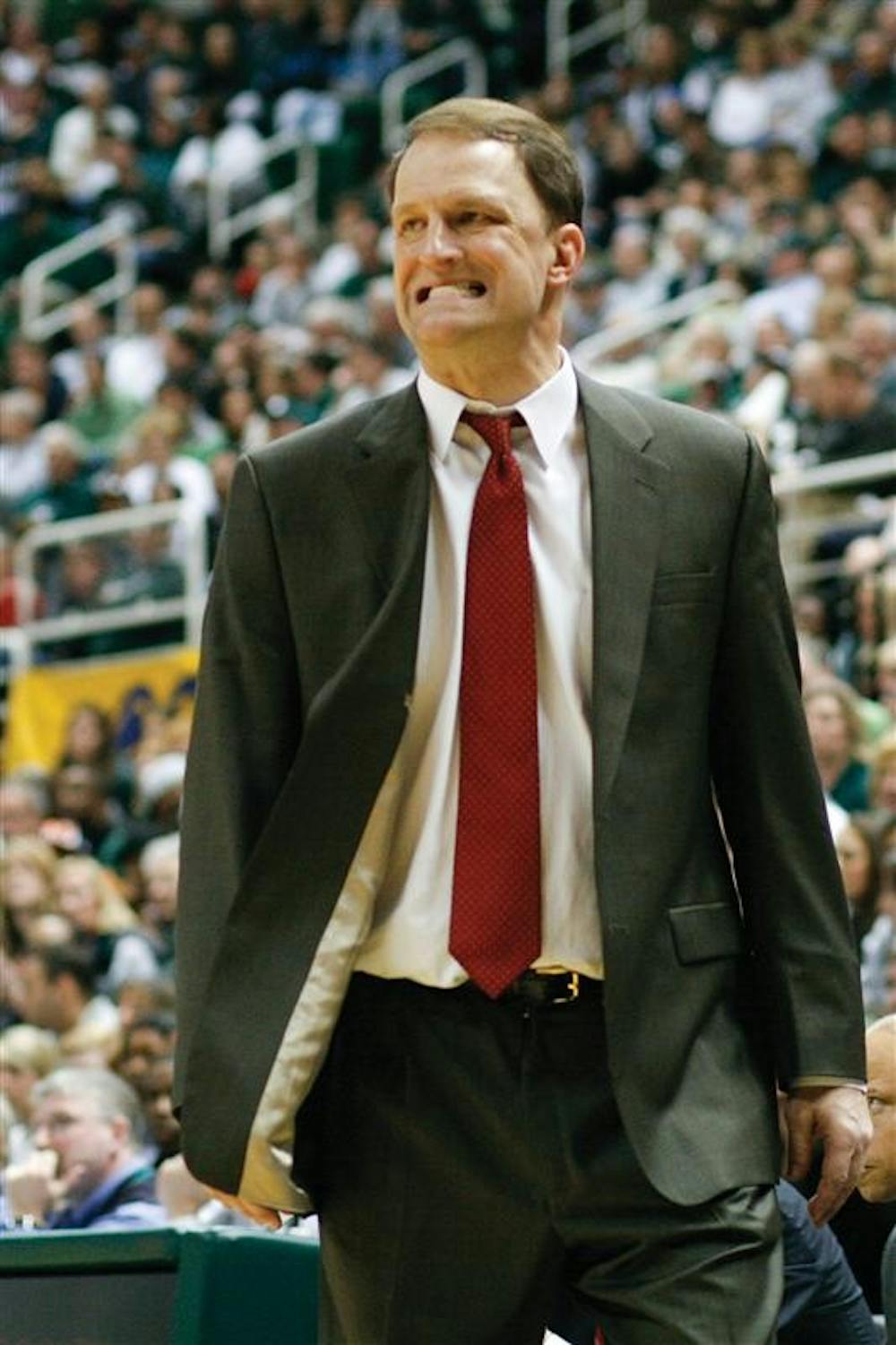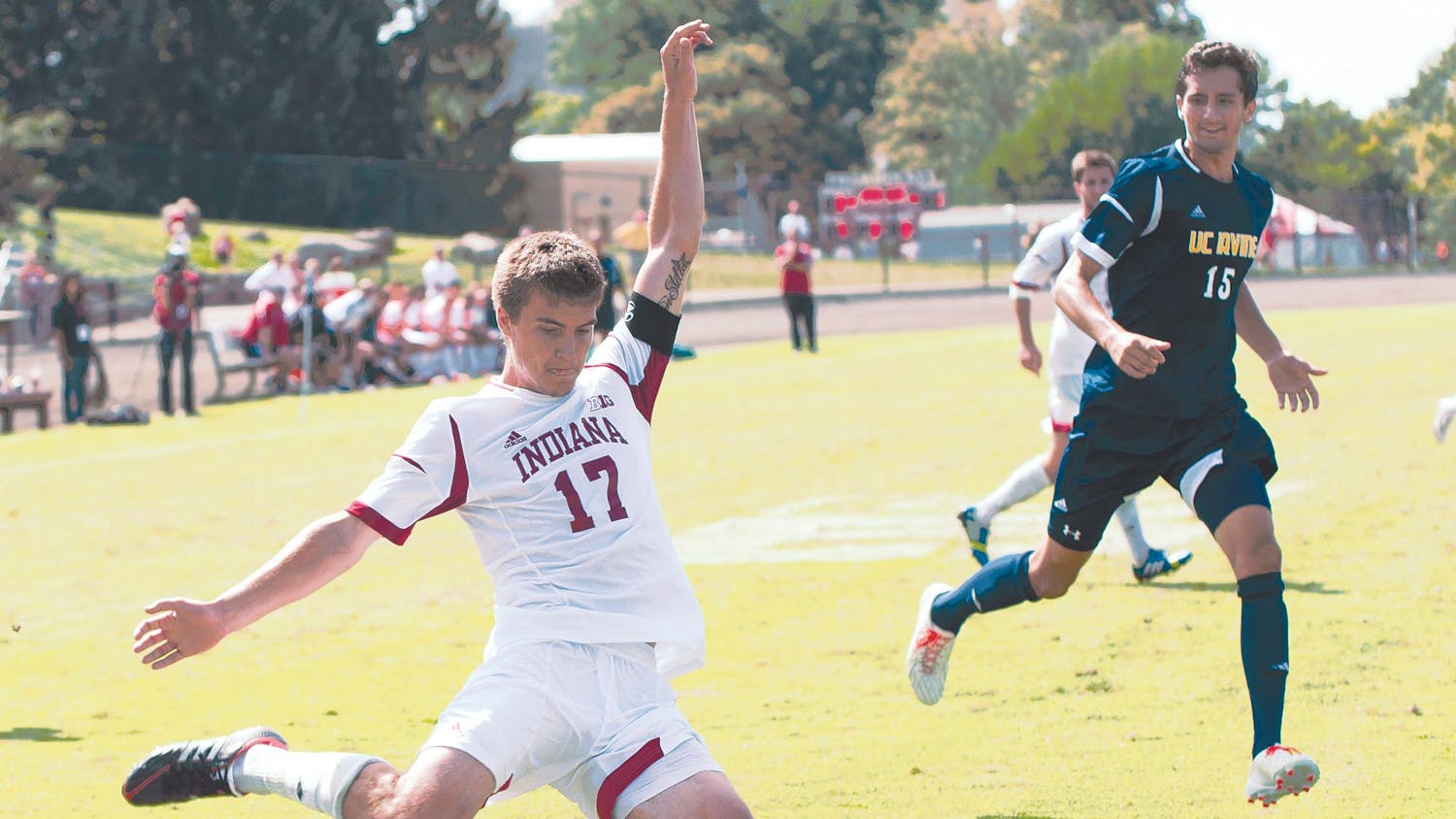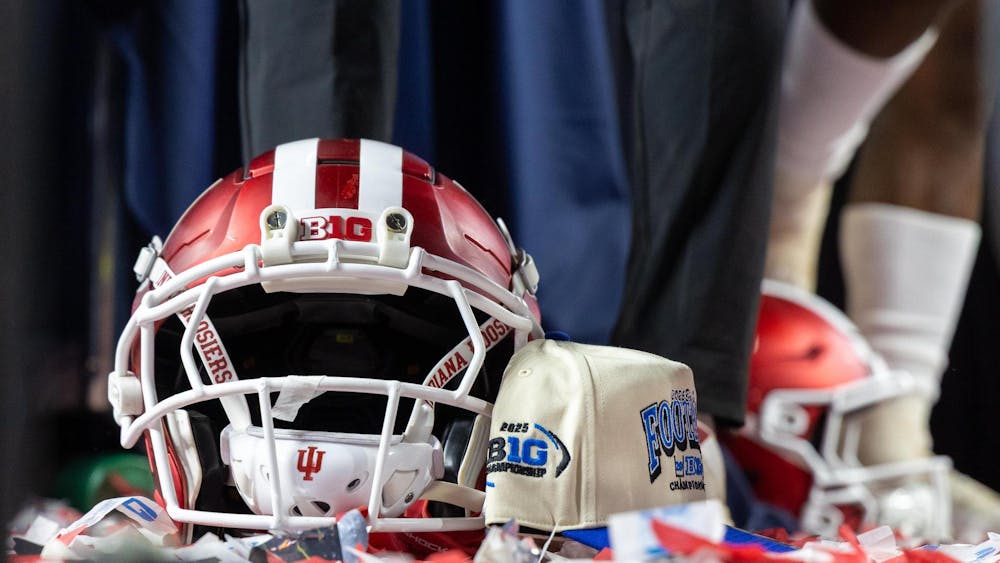Usually, stories labeled “opinion,” “analysis” or “commentary” don’t appear on the front page.
We place columns on page one in extremely rare occasions – only when the news presented in the column is as important, relevant and well-researched as anything else on the page.
After careful consideration, the Indiana Daily Student staff decided this commentary, which follows up on an untold angle of one of the biggest stories in recent IU history, meets the criteria.
AUDIO: Full interview with Dan Dakich
Dan Dakich has regrets.
He regrets putting a man on the ball in the Big Ten Tournament against Minnesota, a game the Hoosiers lost when Blake Hoffarber’s desperation shot dropped in the basket during the game’s dying seconds.
“I’ve never lost not putting a guy on the ball,” Dakich said, “and twice I’ve lost putting that guy on the ball.”
He has others, too, but of a more pensive nature.
Thrust into the interim coaching position last February, Dakich did his best to salvage a season threatened by NCAA violations. All he could do was hold it together with discipline and a long-forgotten sense of what it meant to be a Hoosier.
Cut loose after a 3-4 record to end a season defined by everything except what happened on the court, it seems fair for the man to let his mind wander to what might have been had he adopted the lax administrative attitude of his predecessor, by then in exile.
Dakich said if he did it that way, he might still have a job.
“But you’ve kind of got to live with yourself,” Dakich said during lunch Wednesday at the Trojan Horse downtown.
What does “living with yourself” mean to Dakich, a husband and father of two?
It means a clear conscience. It means the ability to face yourself knowing you did it right. It means you don’t need someone else’s approval to know you did what needed to be done, even if you paid the piper with your job.
Every coach from last year’s team – including Kelvin Sampson – has landed at another high-level basketball job. Except Dakich.
“I never felt like I had to be vindicated,” Dakich said. “It hasn’t really worked out well for me, but I’ve always felt like, if you can live with yourself – and you know what you did was right, and you know why you did it was right and how you did it was right – then you don’t need anybody else’s vindication.”
Dakich says he’s enjoying what he’s now doing – coaching his son’s and daughter’s youth basketball teams and hosting a daily talk show on an ESPN Radio station.
Still, it’s hard not to sympathize with Dakich, a man who practically embodies IU basketball.
He played for Bob Knight, spent 16 consecutive years within the program as a player or coach and returned to Bloomington as an assistant under Sampson, the coach who was supposed to raise the IU pennant back to the top of the college basketball world. Dakich became a sacrificial lamb in a long, bloody, miserable season that left fans begging to burn the village just to save it.
But he’s not bitter. He praised Tom Crean for the work he has done to try and restore the integrity of IU basketball, something that had gone missing in the last two years.
“A lot of schools do things right,” Dakich said. “But what separates those programs from others is the pride you have in doing things right, meaning a senior at Indiana University or Duke or North Carolina is not supposed to let freshmen act wrong. A senior at Indiana University or Duke or North Carolina is supposed to not ask freshmen or sophomores or junior college kids to do things the right way, he’s supposed to demand it. And that’s what’s always happened here at Indiana.”
So when he took the reigns of the program in February, Dakich made them go to class every day. He made them show up to practice on time every day. When they didn’t, they ran. When they didn’t want to run, he told them there was no place for them in the program.
He regrets he’s no longer manning the sideline at Assembly Hall, his favorite arena, but not so much that he regrets upholding a pride that’s lived in him since he played there.
“I didn’t let them do what the hell they wanted to do,” Dakich said. “Maybe they would have been happier, won more, I don’t know.
“But it just wasn’t going to happen with me as the coach.”
‘I never felt like I had to be vindicated’

Get stories like this in your inbox
Subscribe





